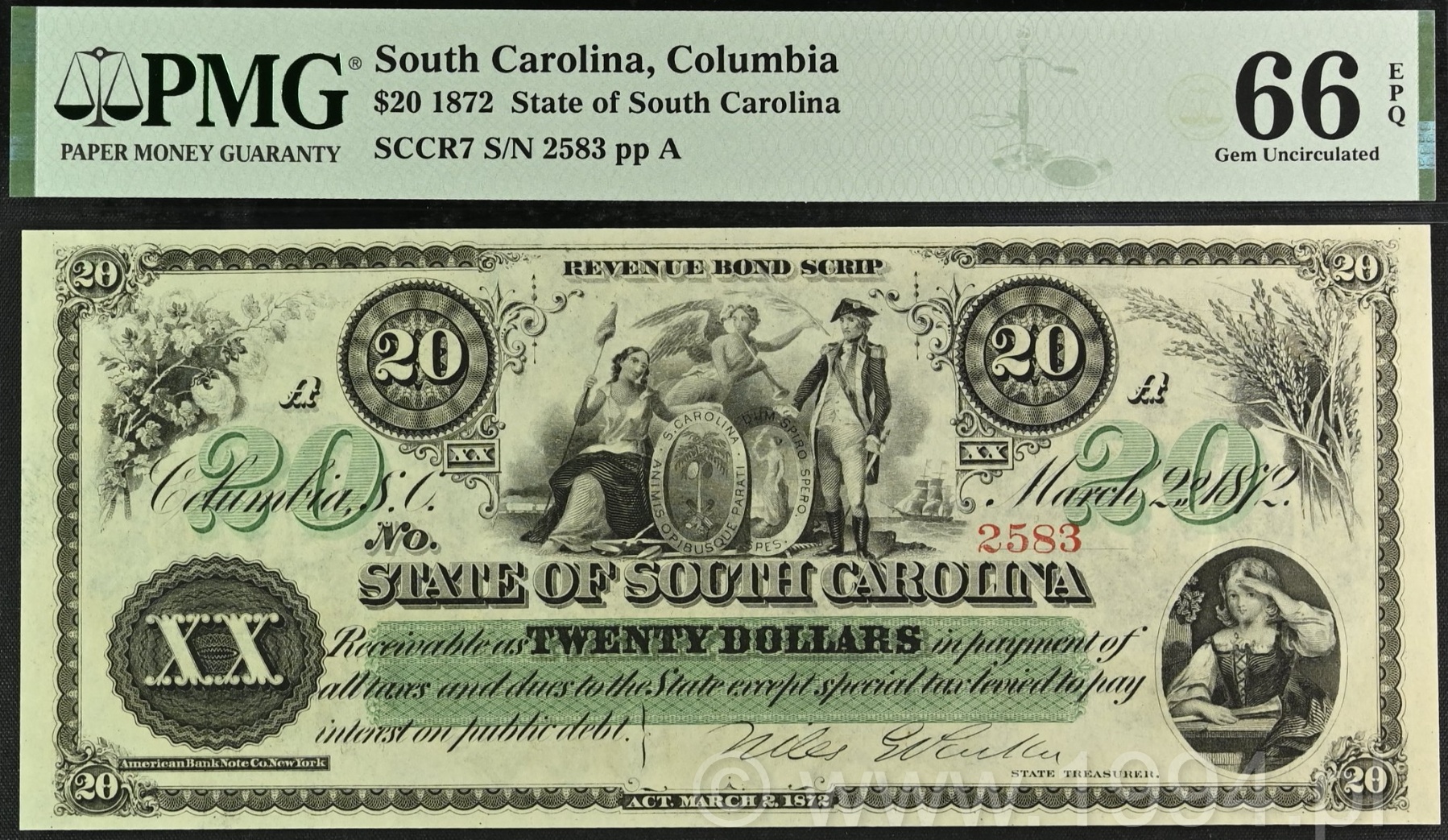Description and research notes
The $20 Revenue Bond Scrip of the State of South Carolina, dated March 2, 1872, represents one of the most ornate and historically revealing fiscal issues of the Reconstruction era. Authorized by the Act of March 2, 1872, these notes were used by the state government to pay outstanding obligations and to serve as tax receipts during a period of severe post–Civil War financial strain. Printed by the American Bank Note Company in New York, the scrip combined fine engraving, symbolic imagery, and the technical artistry characteristic of the firm’s early 1870s production.
The central vignette portrays Liberty presenting a laurel to an allegorical figure of South Carolina while a sailor and ship in the background evoke commerce and maritime trade. The state seal appears prominently in the center with the Latin motto 'Animis Opibusque Parati'—Prepared in Mind and Resources—encircled by flourishes of oak, palm, and rice. The numeral '20' is printed multiple times in both black and green, enhanced by a large green protector overprint, while the serial number '2583' appears in red. In the lower left, the bold Roman 'XX' denomination rests within a guilloche medallion, and to the right, an engraved portrait of a woman reading reinforces the domestic virtues that Reconstruction propaganda sought to associate with recovery and stability.
The text across the bottom—'Receivable as Twenty Dollars in payment of all taxes and dues to the State except special tax levied to pay interest on public debt'—clarifies its function as quasi-currency in circulation. Signed in manuscript by state officers and engraved with 'American Bank Note Co. New York' imprint, the note is both a financial instrument and a document of political rebuilding in a South still divided by war and economic upheaval.
Certified PMG 66 EPQ Gem Uncirculated, this example is a superb survivor with original color, sharp embossing, and flawless margins. Its preservation underscores the artistry and historical resonance of state-issued scrip—a tangible relic of South Carolina’s attempt to restore credit, taxation, and public trust in the uncertain years following Reconstruction.
